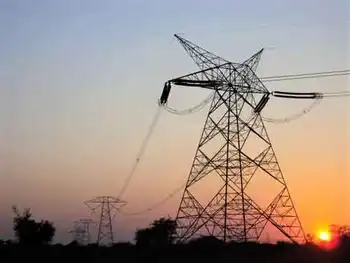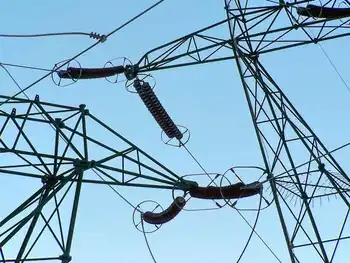Green energy sector fears Hudak win
By Globe and Mail
NFPA 70e Training - Arc Flash
Our customized live online or in‑person group training can be delivered to your staff at your location.

- Live Online
- 6 hours Instructor-led
- Group Training Available
Conservative Leader Tim Hudak said that if he were elected premier in the October election, he would kill off the province's feed-in tariff FIT program, which pays high prices for electricity generated from renewable sources as long as a minimum proportion of the equipment in a project is manufactured in Ontario.
The FIT program, part of the governing Liberal party's Green Energy Act, has prompted many equipment makers to build plants in Ontario, or to promise to do so.
One of the biggest investments is from Canadian Solar Inc., a global solar-panel company that is based in Kitchener, Ont., but until recently had most of its manufacturing operations in China. It is in the process of ramping up a $50-million plant in nearby Guelph that employs 300 people.
Chief executive officer Shawn Qu said he always intended to expand in Canada at some point, but the FIT program spurred him to move fast and go big. Now, he said in a telephone interview from China, "to be honest I'm concerned, because the message from the province is not clear."
He said the FIT program can certainly be improved, but companies need to know where they stand over the long term. "Without clarity, that's going to hurt business."
Paulo Maccario, general manager of Silfab Ontario Inc., the Canadian arm of a large Italian solar panel company that recently started manufacturing in the province, said killing the FIT would be bad for his company and for the industry overall.
The idea behind the program was to create a "virtuous cycle" of renewable hardware supply in the province, he said, and so far a few "brave souls" such as Silfab have started up. Other Italian solar product makers were considering Ontario, he said, but they have now indicated they will wait until after the provincial election in October before making a decision.
The uncertainty sends a "don't come here" signal to the solar industry, Mr. Maccario said.
Mike Carten, CEO of Calgary-based solar inverter maker Sustainable Energy Technologies Ltd., said he is puzzled that Mr. Hudak vowed to kill the FIT program, because many of those taking advantage of it are small suppliers, or individuals building small solar power systems, and both groups are the Conservatives' natural constituency.
"If he pulls the pin... it's going to be the smaller companies... that are going to be feeling the pain," said Mr. Carten, whose company built an inverter plant in Ontario because it expected a surge in business as a result of the FIT local-content requirements.
"The program as a whole has done what I think they were trying to do, which is to get a number of companies actually building manufacturing capacity within the province, with the view to serving the market and exporting," he said.
Mr. Carten said it is damaging to Ontario's integrity if something like FIT is set up as a long-term program to draw investment, and then it is changed drastically by a new set of politicians.
Still, Mr. Carten said he agrees with Mr. Hudak that some of the details of the province's green energy plan are opaque, and that a deal with Samsung Group — in which the company committed to build large manufacturing plants in the province in return for large subsidies — needs to be revisited.
Elizabeth McDonald, executive director of the Canadian Solar Industries Association, said the FIT program has already succeeded in creating a lot of new manufacturing jobs, particularly in hard-hit parts of Ontario such as Windsor.
She said one reason Ontario has been able to attract this investment is that it is seen as a very stable place to do business. "It would be unfortunate if the impression is given by any of the [political] parties that this is not a stable environment." There is a danger, she added, that if investors "get their fingers burnt, they won't come back."











